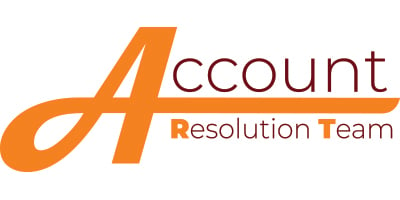Part 1:
9 Terms To Know
Youtube. Facebook. Instagram. Email. Netflix. Podcasts. Google. Wikipedia. The chances are that we have all visited some, most, or every one of these platforms within the last two to three days. We are constantly bombarded with multiple types of information. A lot of what seems spontaneous has, in fact, been carefully designed to hit us in a very specific way. Don’t be hoodwinked; content creators definitely want to elicit a specific emotional response. Laughter, excitement, softened hearts, etc. Unfortunately, many of those sources actually want to drum up negative emotions rather than positive ones. It can be difficult to distinguish who is trying to entertain or inform us, and who has a premeditated agenda designed to sell us their costly solutions to life’s vexing hurdles. Shame is a powerful tool, ask any parent who’s openly admitted to making a mistake! Shaming ideas, followed by a seductive invitation to watch how someone else solved all their problems, has minted a lot of these disingenuous “life coaches.” This is no different in the credit world. Everywhere we turn people are marketing stories (frequently connected to the MLM they happen to be hawking) about how they became footloose and fancy-free from debt. They are financial gurus. They have the secrets we long to learn and are living the lives they tell us we want to be living. “What am I doing wrong?”, we ask ourselves. “How am I in debt when the rest of the world has figured it out?”
Well, let’s unpack the veracity of such claims. A wise man named Dieter F. Uchtdorf once said, The thing about truth is that it exists outside of belief. Even if nobody believes it, that thing is still true. In order to live a great life, to do what we want to do and become what we’d hoped we’d be, and achieve success in our goals, we must always start with the truth. If you have ever felt ashamed about being in debt, don’t. Debt is nothing to be ashamed of. It should never cause us to see “get-out-of-debt-quick” schemes as life preservers rather than what they are: shady shell games where the barker always wins. Here is an absolutely true story. 8 out of 10 Americans owe some type of consumer debt. The average American debt is $38,000. A recent Forbes Advisor survey found that nearly 70% of those who have borrowed money in the past said it led to their financial situation being better. “Those whose finances benefited from borrowing money likely followed responsible practices to avoid pitfalls.” Most of us have borrowed money to realize personal dreams, and we really are all in this together. True, we all want to get out of debt, just as we all want to lose weight, win the lottery, and successfully potty train our pets.
So, you’re in debt. Now what?
First of all, sadly, there is no magical shortcut that will zoom us out of debt in the twinkling of an eye. (Sorry Aunt Judy, we’re not going to be selling that lipstick for you after all). Paying off debt is not the most entertaining pastime and can take a while, but it is not a death sentence; It is 100% achievable. This article is Part One in our How do you get out of debt? series. Getting overwhelmed before the real effort even begins is understandable and not uncommon. Understanding the paperwork that comes with the process of debt eradication is an accessible way to curb feelings of fear and confusion. Debt repayment legalese need never intimidate us. We’ll start with just nine terms that come up frequently during phone calls and in financial agreements.
- The Fair Debt Collection Practices Act (FDCPA)
The Fair Debt Collection Practices Act was implemented in March of 1978. Its main purpose is to eliminate abuse by debt collectors, though it has some protections for those who are owed debt as well. It’s worth a read. It explains what can and cannot be done by those involved in a debt collecting arrangement, both debtor and creditor. Here’s a click:
https://www.federalreserve.gov/boarddocs/supmanual/cch/fairdebt.pdf
- Default Provisions
Simply put, default provisions are the answer to “What if I don’t pay back the money I owe?” They list the legal consequences that will occur if a debt is not repaid.
- Interest and Collection Costs
When we sign a financial document we are agreeing to conditions that are written into the contract, known as clauses. Interest and collection costs are common clauses we’ll see in financial contracts. The interest costs are what we are agreeing to pay on top of the original amount we borrowed if we are unable to pay back the amount we owe by the date listed on the financial document. The collection costs have to do with the business we owe money to having to hire the services of a debt collection agency to help them with our account. This clause is telling us the portion of that amount that is being passed along to us and added to the total amount we owe.
- Acceleration Clause
This is a term we want to take note of if we see it. Let’s say we agree to pay back $500 over a year at $41 per month. The acceleration clause, if seen in a contract, means that if we are too late on one of those payments, then that year to pay back the loan is canceled and we must now repay the rest of that $500 right away!
- Credit Counselor
Amidst our trek down the road of debt repayment, we might hear a suggestion to see a credit counselor. Credit counselors are great resources for help and encouragement! Before we hire one, though, let’s make sure we find one who is licensed and reputable. The National Foundation For Credit Counseling is the country’s largest nonprofit dedicated to improving people’s financial well-being. Here we can find people who are specially trained to help us develop a plan to fly the debt coop! Another great source to find someone to help us with our debt is this list of approved credit counselors compiled by The United States Trustee Program.
- Debt Settlement Services
A debt settlement service is not the same as a credit counseling service. These companies will often use words in their ads like, “debt relief,” or “debt adjusting.” Remember the old adage that if something seems too good to be true, it usually is? These companies claim to renegotiate, settle, or in some way change the terms of a debt we owe. These are slick advertising claims, not legally bound guarantees. Hiring these types of companies is very risky, and can have a negative impact on your credit score! In most cases, they will not make a large enough dent in the debt we owe to offset the high charges they will charge! Stay clear of their false, empty promises.
- Judgment
A judgment is the official result of a lawsuit in court. Though paying back money is not always easy, ignoring the debt can lead to a debt collection lawsuit. If we then avoid the lawsuit we lose our chance to defend ourselves and we could have a judgment entered against us (lose) automatically.
- Garnishment
This is not a fun word. It means that part of our paychecks, or even some of the money in our bank account can be taken and sent to the creditor to whom we owe money. A garnishment is a last resort of debt collection agencies. It is another unhappy consequence of ignoring debt until we are forced to deal with it in a painful way. Fortunately, working with our creditors instead of ignoring our situation will mean this consequence stays far, far away and this word will remain a stranger to us.
- Statute of Limitations
A statute of limitations is the limited period of time creditors and debt collectors have to file a lawsuit against us. The amount of time varies from state to state and can vary based on the type of debt we owe. A good place to find out what the statute of limitations in a particular state is credit.com, where they have compiled This List.
Knowledge is power! Educating ourselves on everything to do with the debt we owe will keep that feeling of helplessness away. Accruing debt is often necessary to get to the next stage of our lives, to “level up”, so to speak, but that doesn’t mean the debt that has assisted us must stay shackled to our ankles for the rest of our lives. Ignoring debt is as risky as ignoring the symptoms of a serious illness, but formulating an informed plan to get out of debt is the “antibiotic” we need.
Depend on Account Resolution Team as a resource for getting out of debt. Be sure to follow us on Facebook, LinkedIn, and Twitter, and see our other blogs at: www.accountresolutionteam.com

